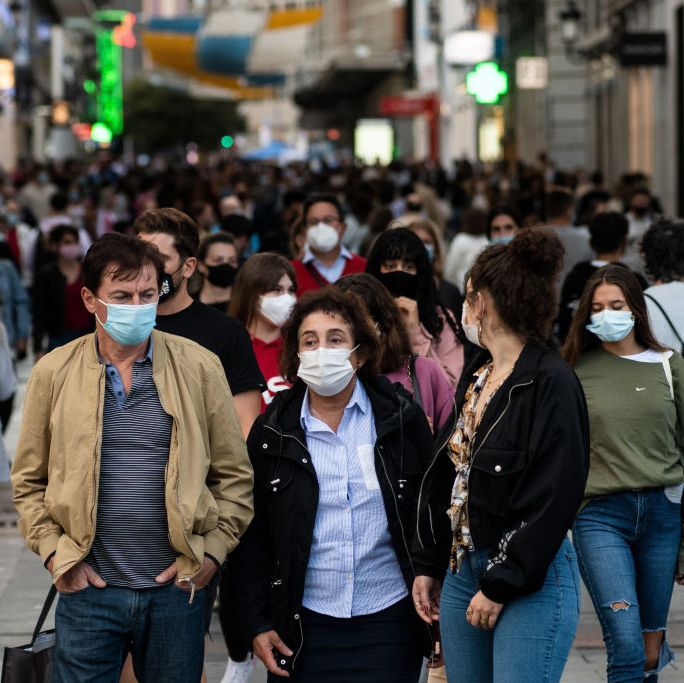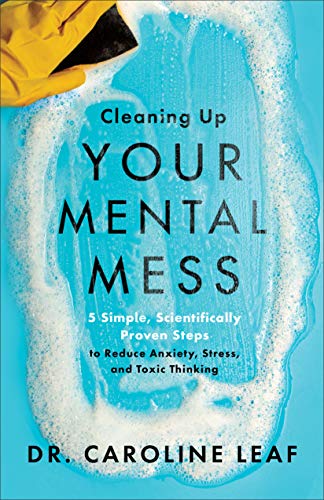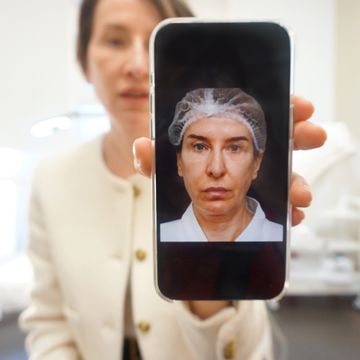He works six to seven days a week, but when he goes home for dinner with his family, Thomas Yadegar, MD, takes a few minutes to gather himself before going inside. Sometimes he breaks down. The 20 physicians he leads at the ICU at Providence Cedars-Sinai Tarzana Medical Center in L.A. and West Hills Hospital & Medical Center confide in him that they too “stop on their drive home and just cry,” he says. They all have nightmares. “I don’t see how any human who has gone through and witnessed what we have could not be changed dramatically and to the core,” he says. He hasn’t had a second to prepare for how over 14 months of watching COVID-19 patients die will affect him going forward.
Many of us are experiencing our own traumas, wondering when we can return to our former selves, emotionally, psychologically, and socially. Or if our brains even can. That organ between our ears is constantly changing—a quality called neuroplasticity, in which the 200 trillion connections between the 86 billion neurons in our brain morph to accommodate new situations and environments. “Brain circuitry comes to reflect what you can do; what you spend your time on changes your brain,” says Stanford University neuroscientist David Eagleman, PhD, author of Livewired. “You’re more than what you eat; you become the information you digest.” The pandemic, the politics, and the Zooms are all part of who we are now. “We can never go back to being the person we were before,” Eagleman says because we can never un-experience what we’ve been through.
For those of us at home, we’re mostly in “low-power mode,” says Tara Swart, MD, PhD, a neuroscientist, and author of The Source: The Secrets of the Universe, the Science of the Brain. “The brain isn’t as resourced as usual; there’s no mental stimulation, not much variety—it’s like Groundhog Day. It decreases your motivation. When we reenter being social, there’s going to be a lot of fear short-term,” she says, including a hesitancy to touch others.
There is also a serious mental health component. While some have experienced stress responses from which they will likely rebound (poor sleep, excess worry), others will need more attention, says Kathleen Pike, PhD, director of the Columbia-WHO Center for Global Mental Health and scientific adviser for Maybelline Brave Together, a mental health initiative. Given the ongoing challenges of the pandemic, many are falling prey to issues like anxiety, depression, and OCD—either for the first time or with worsening symptoms. For frontline workers in particular, “this is an acute crisis,” Pike says. Studies of past pandemics and epidemics show that some may exhibit psychological distress, such as burnout, insomnia, anxiety, and depression, up to two years later. Yadegar says he wouldn’t be surprised if “the suicide rate of health care workers dramatically increases [over] six months to a year or even many years.”
Those who have experienced dramatic financial upheaval are also vulnerable. “Severe economic stress can be associated with increased risk of substance use, mood disorders, and suicide,” Pike says. She also stresses how much harder this pandemic has hit women than men, taking a toll on their mental health.
Even if you’re able to rebound, it may take time to feel truly connected again, particularly if you’ve been living alone. “The loneliness aspect has been a serious problem,” Swart says. “There’s a reason solitary confinement is the worst punishment anyone can have.” And we are experiencing grief–individual and collective mourning for souls passed and the loss of our previous lives, livelihoods, and selves. “And as long as it took you to get to this stage now, it will take you [that same amount of time] to get back to how you want to be,” Swart adds.
Lordy, can we help this reentry along? Caroline Leaf, PhD, a communication pathologist and cognitive neuroscientist in Dallas and one of the first people to study neuroplasticity in the 1980s, sees the mind’s adaptability as a healing force. “We’re not stuck with a COVID brain,” she says. “We can direct the neuroplasticity in the direction we want through mind management.” She suggests focusing on three hopeful thoughts for every negative one to “create a healthy energy flow in the brain, increasing theta waves. It’s like a healing boost: It changes the chemistry of the brain and also sends a message to your body. Cortisol levels drop, and the heart starts functioning better; we respond incredibly well to one little boost of hope.” She has developed a five-step process to “manage your mind” that she’s proven in clinical trials “to increase your control of depression and anxiety by 81 percent, no drugs involved,” which is outlined in her new book, Cleaning Up Your Mental Mess, and on her apps Switch and NeuroCycle. “If we don’t manage and direct how our mind and brain are changing, we get tossed around,” she says.
Swart suggests journaling—or voice or video journaling—to help release troubling thoughts and reinforce positive mantras, so negativity-carrying neurons don’t wire together. For people living alone, she says, a warm bath can trigger oxytocin, which we’ve been missing. And to help the brain overturn negative thinking, be sure to get enough sleep, drink water, exercise, meditate, and eat healthy foods.
Pike explains one way our brains may have actually changed for the better: post-traumatic growth. “It’s the hero’s journey when we live through extremely challenging and difficult times, and come out stronger than we were before,” she says. We develop a sense that new opportunities emerge from struggle—renewed relationships, deepened spiritual lives, a greater appreciation for life in general.
Another silver lining is a new simplicity. We may question what’s really worth our time, Eagleman says. “Our perspective is going to be forever changed.” From his lips to our brains.
This article first appears in the May 2021 issue of ELLE Magazine.














